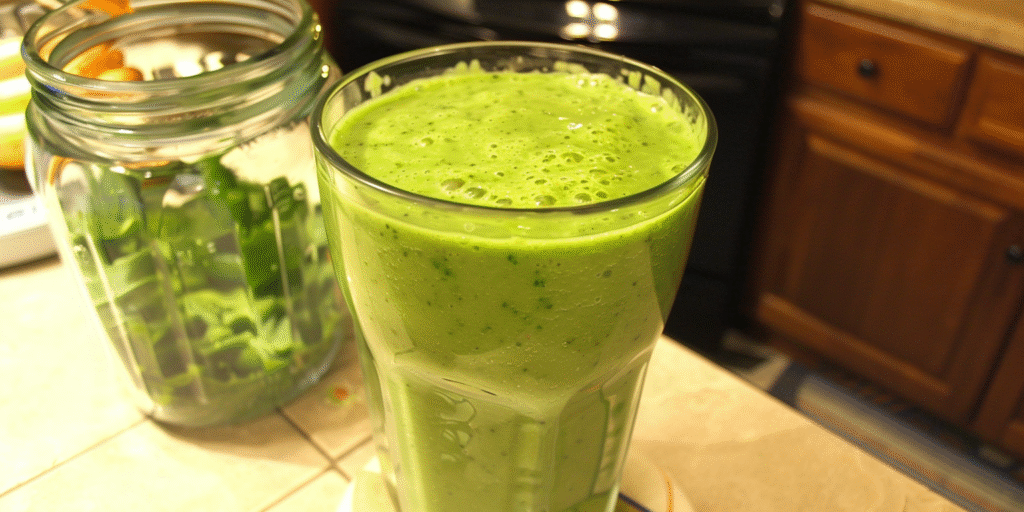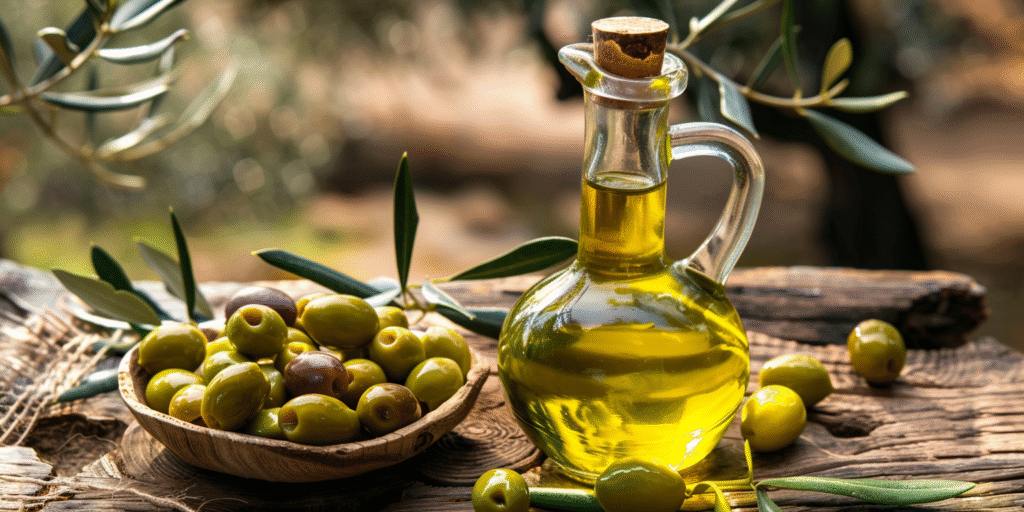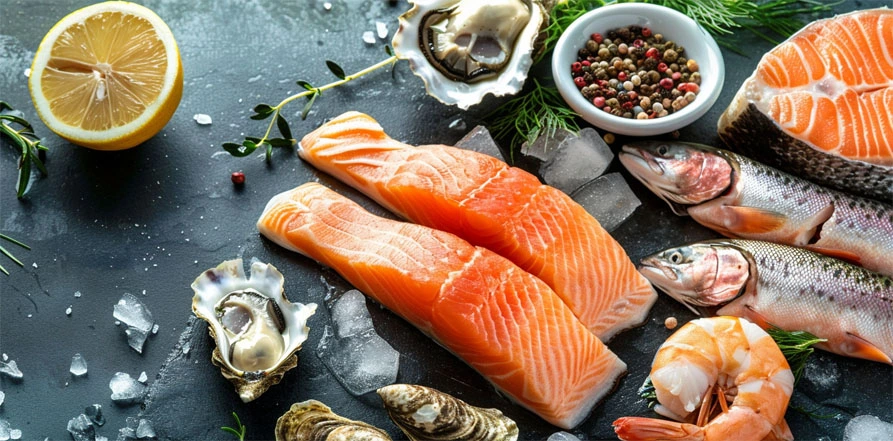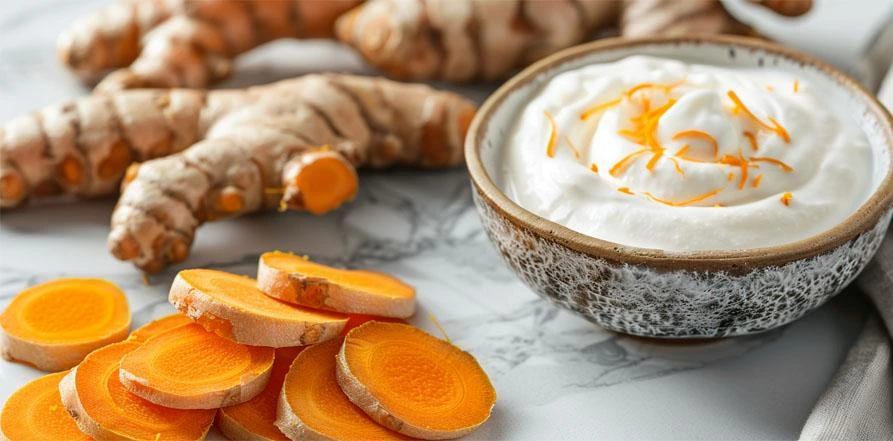By Donnie Yance
Great News: The following post is an introduction to the topic of diet and prostate cancer. This is the topic I am currently developing for my next book, so stay tuned for future announcements about when the book will be finished.
Prostate cancer represents one of the most significant health challenges facing men globally. It’s the most prevalent cancer among men in over half of the world’s countries and the leading cause of cancer mortality in 46 nations, with the Caribbean region reporting the highest rates.
Globally, prostate cancer ranks as the second most common cancer and the fifth-leading cause of cancer death worldwide, accounting for 1.3 million new cases and 359,000 deaths in 2018. In the United States, it remains particularly prevalent, with approximately 174,650 new cases diagnosed in 2019—representing nearly 20% of all newly diagnosed cancers in men. The lifetime risk is substantial, affecting one in every six American males at some point during their lives.1
In 2023, medical professionals will diagnose an estimated 288,300 new cases in the United States alone, with approximately 34,700 men expected to succumb to the disease. The disparity in prostate cancer incidence among different populations is particularly striking, with black men experiencing a 70% higher occurrence rate compared to white men, though the underlying causes of this disparity remain incompletely understood.
Prostate cancer is a disease with several clinical and molecular features. While genetic predisposition plays an undeniable role in prostate cancer development, compelling evidence suggests that environmental factors, particularly dietary choices, significantly influence both cancer risk and progression. Understanding these modifiable risk factors has become increasingly crucial as researchers and clinicians work to develop more effective prevention strategies and therapeutic interventions.
Modern medicine has helped us live longer healthier lives, yet simple lifestyle choices still play a crucial role in preventing disease. Regular exercise, not smoking, limiting alcohol, eating well, and maintaining a healthy weight all reduce disease risk.
What we eat matters greatly. Research shows that people who eat mostly plant-based foods tend to live longer, while diets heavy in red meat and fats can increase harmful oxidative stress in the body, potentially leading to various diseases and premature aging.
A new study by Wang et al. (2025)2 provides compelling evidence that dietary patterns and lifestyle choices significantly impact all-cause and cardiovascular disease-related mortality in men with nonmetastatic prostate cancer, regardless of racial and ethnic differences. The study found that African American men with higher lifestyle scores had a 54% reduction in prostate- cancer-specific mortality compared to those with lower scores.
High Diet Quality Lowers Risk Of Progression Among Localized Prostate Cancer Patients
In a prospective study of 411 men with newly diagnosed prostate cancer on active surveillance, a study investigated associations between diet quality (measured via the Healthy Eating Index-2015) and disease progression. After a median follow-up of 36 months, results showed an association between baseline diet quality and prostate cancer progression. While no associations were observed with diet quality at 6-month follow-up or change in diet quality from baseline. These findings suggest that a higher diet quality at enrollment may lower risk of prostate cancer progression among patients on surveillance.3
The Geographic Paradigm
The relationship between diet and prostate cancer becomes particularly evident when examining global disease patterns. Countries where traditional Asian diets predominate, consistently demonstrate significantly lower rates of prostate cancer compared to Western nations. However, this protective effect diminishes when individuals migrate to Western countries and adopt local dietary patterns. This phenomenon strongly suggests that dietary choices, rather than genetic factors alone, play a crucial role in disease development and progression.
A particularly compelling study of Japanese men who immigrated to the United States found that within one generation, their prostate cancer risk increased four-to-nine-fold after abandoning their traditional dietary patterns.
This dramatic shift in cancer risk within a single generation provides one of the most powerful arguments for the role of diet and environment in prostate cancer development.
The Mederi Care Approach
The relationship between diet and prostate health represents a crucial intersection of traditional wisdom and modern scientific understanding. Through the lens of Mederi Care’s comprehensive approach, we recognize that dietary choices can significantly influence not only prostate cancer prevention but also support during and after treatment.
This comprehensive guide weaves together three essential elements:
- The time-tested principles of Mederi Care’s dietary approach
- Current scientific research on nutrition and prostate cancer
- Practical, implementable dietary strategies for both patients and healthcare providers
Medicine should first boost robustness and autoregulation. It should have system-wide benefits with an understanding that everything in the body is connected and in flux.
Dietary Medicine and Cancer
This guide considers the whole person, examining the host, the microenvironment, and the specific characteristics of the prostate cancer. Every dietary recommendation is grounded in Mederi Care’s Four Golden Rules of Eating: Quality, Balance, Quantity, and Relationship.
Our approach to prostate health begins with a fundamental understanding: humans are not meant to merely “function” like machines. We are complex beings designed to create, feel, respond, and heal. This perspective shapes how we view both prevention and treatment of prostate conditions.
Each individual requires unique attention, we can’t treat the masses when it comes to cancer or any other health condition.

Insights and Considerations for the Dietary Toolbox
- Human Constitutions and Food Energetics: Focus on foods that nourish inward and outward vitality, the main organ systems (Kidney, Spleen, Liver, Lung, and Heart), and specific tissues and organs.
- Nutrigenomics: With the advent of a growing scientific field of study called nutrigenomics, the old adage “you are what you eat” is proving to be much more than folk wisdom. Nutrigenomics takes into consideration the relationship between diet and genetics, and identifies the beneficial or detrimental health effects of various foods and nutrients..
- Super-Phytonutrient Rich Foods: and their specific cancer-inhibiting targets and mechanisms
- The Medicinal Smoothie (see the end of this post)
- Specific Foods and Dietary Recommendations: for cancer patients undergoing chemotherapy, radiation, and surgery.
- Specific Foods and Dietary Recommendations: for common cancer related ailments including nausea, constipation, diarrhea, heartburn, mouth sores, anemia, immune-suppression, fatigue, edema, gout, etc.
- The Medicinal Immune-Enhancing Bone Marrow Soup (See the recipe HERE)
- Juices, Flavored Waters, and Simple Teas
- Specific Foods and Dietary Recommendations for cancer-related cachexia
- Specific Foods and Dietary Recommendations for Insulin resistance
- Spices and Culinary Herbs: that add flavor to your food and support to your cancer defense capability.
- Seasonal and Wild (non-hybrid) Foods: to include for health promotion and cancer inhibition.
The Plant-Based Revolution
Research has consistently demonstrated that plant-based diets are associated with a reduced risk of several urological conditions, including prostate cancer, erectile dysfunction, benign prostatic hyperplasia (BPH), and kidney stone formation (nephrolithiasis). These dietary patterns, which emphasize fruits, vegetables, whole grains, legumes, nuts, and seeds while limiting animal products, offer significant advantages for both individual and environmental health outcomes. The compounds found in plant foods—such as antioxidants, phytochemicals, and fiber—appear to have protective effects on urological tissues while simultaneously reducing inflammatory processes. Furthermore, the adoption of plant-based eating habits contributes substantially to environmental sustainability by reducing greenhouse gas emissions, water usage, and land degradation associated with food production, thereby creating a synergistic benefit for urological, bodily, and planetary systems.4
Recent research has revolutionized our understanding of how dietary choices influence prostate cancer outcomes. A landmark study presented at the 2023 ASCO Genitourinary Cancers Symposium revealed groundbreaking findings regarding plant-based diets and prostate cancer progression.
The research, conducted through the Cancer of the Prostate Strategic Urologic Research Endeavor (CaPSURE),5 demonstrated that men who consumed the highest amounts of plant-based foods experienced a remarkable 52% reduction in disease progression risk and a 53% decrease in recurrence risk.
These findings represent more than mere statistical correlations. The protective effects of plant-based diets appear to work through multiple mechanisms, including: reduction of systemic inflammation, enhancement of antioxidant activity, modulation of hormone levels, and support of healthy gene expression. Furthermore, plant-based diets typically provide a complex array of bioactive compounds that work synergistically to create an internal environment less conducive to cancer development or progression.
The Mediterranean Diet Paradigm
The Mediterranean dietary pattern has emerged as a particularly promising approach for prostate cancer prevention and management. A comprehensive analysis from the Health Professionals Follow-up Study demonstrated a 22% reduction in overall mortality among men who adhered closely to Mediterranean dietary patterns. This benefit appears to extend beyond general health improvements, with specific protective effects against prostate cancer progression.
Research published in the journal Cancers 6 reveals that men who follow a Mediterranean diet rich in specific micronutrients have a lower risk of prostate cancer and better recovery outcomes when undergoing radiation treatment. Studies comparing plasma concentrations between prostate cancer patients and healthy controls found that the men with prostate cancer had significantly lower levels of lutein, lycopene, alpha-carotene, and selenium, while showing higher levels of iron, sulphur, and calcium.
Men with plasma concentrations below 0.25μg/mL for lycopene and/or below 120μg/L for selenium face increased prostate cancer risk and greater sensitivity to radiation damage. Rather than supplements, researchers recommend consuming foods naturally rich in these nutrients—such as tomatoes, melons, and cranberries for lycopene, and white meat, fish, eggs, and nuts for selenium—preferably as part of a Mediterranean diet customized with professional dietary guidance.
A large-scale study followed over 119,000 initially healthy participants for up to 36 years and found that greater adherence to any of four healthy eating patterns (Healthy Eating Index 2015, Alternate Mediterranean Diet, Healthful Plant-based Diet Index, or Alternate Healthy Eating Index) was associated with approximately 20% lower risk of death from any cause. All dietary patterns reduced mortality from cardiovascular disease, cancer, and respiratory disease, and these benefits were consistent across different racial and ethnic groups. The findings support dietary guidelines suggesting that multiple healthy eating approaches can be beneficial, allowing individuals to choose eating patterns that align with their personal preferences and cultural traditions while still gaining significant health benefits.7
The success of the Mediterranean diet likely stems from its emphasis on a diverse array of protective compounds found in olive oil, fresh vegetables, herbs, fruits, legumes, and fish, combined with its limited inclusion of potentially harmful foods such as red meat and processed products. This dietary pattern naturally incorporates many of the specific beneficial compounds identified in targeted research while avoiding potentially harmful elements.

Olive Oil Consumption and Overall Health Relevant to Prostate Cancer
Two major longitudinal studies provide insights into dietary factors that may benefit men’s overall health and potentially impact prostate cancer risk:
Researchers analyzed data from over 90,000 U.S. health professionals over nearly three decades and found that consuming just half a teaspoon of olive oil daily was associated with:
- Reduced risk of premature death from all causes
- Lower mortality from cardiovascular disease, cancer, and neurodegenerative conditions
- Benefits when substituting olive oil for less healthy fats like butter, margarine, and dairy fat
This suggests that incorporating olive oil, rich in monounsaturated fats and antioxidants, may offer protective benefits that can extend to prostate health, though specific prostate cancer outcomes weren’t highlighted in this summary.8
Cancer Prevention and Treatment Support With Probiotics
Research demonstrates that probiotic-rich foods play a protective role against cancer development in animal models. When applied clinically, these foods can:
- Reduce postoperative inflammation in cancer patients9
- Enhance the effectiveness of immune checkpoint inhibitors10
- Improve outcomes from chemotherapy11 and radiation treatments12
- Decrease post-surgical complications13
Dietary Antioxidants Protect Against Prostate Cancer Risk
This study examined how dietary antioxidants might affect prostate cancer risk by analyzing data from 5,658 middle-aged and elderly American men who participated in the National Health and Nutrition Examination Survey (NHANES)14 between 2003-2010. Researchers created a Composite Dietary Antioxidant Index (CDAI) based on intake of vitamins A, C, E, carotenoids, zinc, and selenium. Prostate cancer risk was assessed using total PSA (tPSA) and free-to-total PSA ratio (f/t PSA) measurements. The study represented approximately 76 million American men
Key Findings
- Strong Protective Effect: Higher antioxidant scores were significantly associated with lower prostate cancer risk
- Most Effective Nutrients: Zinc and selenium showed the strongest protective associations:
Zinc: odds ratio = 0.80, P = 0.008
Selenium: odds ratio = 0.78, P < 0.001
Food Categories For A Cancer Diet Framework
Category 1: Super-Medicinal Foods (20-25% of diet)
These foods contain the highest concentration of protective compounds and should form the foundation of an anti-cancer diet. Research demonstrates their direct impact on cancer prevention and management through multiple mechanisms.
Key Components:
Cruciferous Vegetables and Sprouts
- Broccoli, cabbage, and radish sprouts (isothiocyanates & sulforaphane)
- Brussels sprouts
- Broccoli
- Cabbage
- Cauliflower
Wild Greens and Herbs
- Watercress
- Dandelion greens
- Nettles
- Wild mustard
- Garlic and onions (allicin-rich foods)
Concentrated Berry Products
- Fruit Anthocyanins
- Wild blueberry concentrate
- Pomegranate (shown to inhibit prostate cancer growth)
- Açai berry
- Huckleberries
- Elderberries
- Cranberries
Mushrooms: In vivo and in vitro evidence has shown that mushrooms have the potential to prevent prostate cancer. Studies have shown an inverse relationship between mushroom consumption and prostate cancer, suggesting that habitual mushroom intake might help to prevent prostate cancer.15
- Maitake
- Shiitake
- White Button
- Reshi
- Turkey Tail
- Lion’s Mane
- Porcini, etc.
Herbs
- Green tea (rich in EGCG)
- Turmeric (Curcumin)
- Ginger (Gingerols)
Category 2: Protective Foods (35-50% of diet)
These foods provide essential nutrients and significant protective compounds but at lower concentrations than Category 1 foods.
Key Components:
High-Quality Proteins (low to moderate levels)
- Wild-caught fish (especially salmon, sardines, mackerel)
- Traditional fermented-soy products (tempeh, miso, tamari, natto)
- Organic eggs from pastured poultry
- Clean protein sources rich in omega-3 fatty acids
Colorful Vegetables
- Dark leafy greens (kale, collards, chard)
- Orange vegetables (carrots, sweet potatoes, winter squash)
- Red/purple vegetables (beets, purple cabbage, eggplant)
Fruits
- Berries of all types
- Citrus fruits
- Stone fruits (pit in the center, such as peaches and apricots)
- Apples and pears
- High lycopene fruits such as: tomatoes, watermelon, papaya, and pomegranates (specifically protective against Prostate cancer –try making a fresh juice combining a pomegranate with orange or tangerine)
- Mangoes (Lupeol)
Healthy Fats
- Extra virgin olive oil
- Olives
- Avocados
- Nuts (especially walnuts)
- Seeds (particularly pumpkin seeds and freshly ground flaxseed)
Whole Grains and Potatoes (purple, sweet, and white)
- Traditional whole grain (sourdough) breads
- Kamut and other ancient grains are best
- Brown, Black and Purple rice (Purple rice extract has been shown to retard the growth of castration-resistant cancer through the suppression of androgen receptor mediated cell proliferation and metabolism.16 Black/Purple rice extract also inhibited testosterone-induced rat prostatic hyperplasia and the growth of human prostate cancer cells.)17
- Quinoa
- Oats
- Buckwheat
Beans and Legumes
- Non-fermented soy foods (edamame, soy nuts, tofu)
- Beans
- Lentils
Category 3: Neutral Foods (15-25% of diet)
These foods, while not actively therapeutic, can provide necessary calories and nutrients as part of a balanced diet.
Key Components:
Commercial Organic Products
- Whole grain crackers
- Pastas (wholegrain or mixed are best)
- Plant-based milk alternatives (almond, coconut, soy)
- Organic condiments (Should be minimally processed)
Moderate Quality Proteins
- Commercial organic eggs
- Farm-raised fish (non-GMO fed)
- Organic poultry
(Should be from reliable sources)
Category 4: Limited Foods
These foods should be consumed in minimal amounts – up to 10% of the diet.
Key Components:
Refined Grain Products
- Whole grain pasta
- Processed grain products (Should be organic when possible)
Natural Sweeteners
- Raw honey
- Maple syrup
- Stevia (Used in moderation)
Occasional Treats
- Dark chocolate (70% or higher cocoa content)
- Whole grain baked goods
- Natural desserts
Category 5: Foods to Avoid Or Limit To Less 2% Of The Diet
These foods have been shown to promote inflammation and potentially support cancer growth.
Key Components to Eliminate:
Processed Foods
- White flour products
- Refined sugars
- Artificial sweeteners
- Processed meats
Harmful Fats
- Trans fats
- Hydrogenated oils
- Refined vegetable oils
- Excessive omega-6 fatty acids
Problematic Proteins
- Factory-farmed meats
- Processed meats
- Non-organic dairy
- High-temperature cooked meats
Implementation Guidelines – Daily Integration:
Morning
- Start with Category 1 foods in smoothies or meals
- Include Category 2 proteins
- Add fresh fruits and vegetables
Midday
- Focus on vegetables from Categories 1 and 2
- Include healthy fats
- Incorporate fermented foods
Evening
- Cooked vegetables from Categories 1 and 2
- Clean proteins
- Minimal Category 3 foods
Practical Tips:
Food Preparation
- Steam or lightly cook cruciferous vegetables
- Use low-temperature cooking methods
- Combine foods for enhanced absorption
- Include healthy fats with vegetables
Timing Considerations
- Rotate foods regularly
- Eat according to seasonal availability
- Consider individual digestion patterns
- Space meals appropriately
Quality Guidelines
- Choose organic whenever possible
- Prioritize local and seasonal foods
- Focus on freshness
- Proper storage methods
This categorization system provides a practical framework for implementing a therapeutic diet while maintaining flexibility for individual needs and preferences. Regular consultation with healthcare providers can help optimize these recommendations for individual circumstances.
Basic Medicinal Smoothie Recipe
Base Ingredients:
3 oz. Raw Coconut Water (Harmless Harvest, or Taste Nirvana)
2-3 oz. Yogurt or Kefir (Examples include: Redwood Hill Farm Goat, Cocoyo coconut yogurt)
Botanical & Nutritional Ingredients:
1 scoop whey protein
1 tablespoon superfood greens and fruits powder
Vitality Boosters:
1 Teaspoon Mixed Fruit Anthocyanins
1 scoop Coconut Milk Powder
1 Tablespoon Marine collagen
1/8 teaspoon Berry Eyes
1/8 teaspoon Papaya enzymes
1/8 tsp. Sea Vegetable powder
1/2 teaspoon raw honey, or maple syrup
1 cup strawberries or raspberries (frozen), together with mangoes, or whatever you prefer, plus a few ice cubes
Optional Tonic/Adaptogen Support
½ to 1 teaspoon adaptogen formula
Other options:
1 Tablespoon ground flax seeds
For Bowel Support:
– Constipation
– 1 Kiwi and or 2-4 softened prunes
- Loose Bowels
Carob powder (1 tablespoon), banana, a pinch of cinnamon
Conclusion
The evidence is clear: what we eat plays a major role in preventing and managing prostate and other cancers. While genetics may increase a man’s risk, lifestyle choices, especially diet, can greatly influence how the disease develops or progresses. Diets rich in plant-based foods, healthy fats like olive oil, and antioxidant-packed fruits and vegetables have been shown to lower the risk of prostate cancer and improve outcomes during treatment. On the other hand, diets high in processed foods, red meat, and unhealthy fats can raise cancer risk and increase inflammation in the body.
By following a nutrient-dense, whole-food diet—such as the Mediterranean or Mederi Care approach—men can take powerful steps toward protecting their prostate health. These choices not only help fight cancer but also improve overall wellness and longevity. Eating well is not just about avoiding disease; it’s about supporting the body’s ability to heal, thrive, and stay strong through every stage of life.
About the Author:
Donnie Yance is a Clinical Master Herbalist and Certified Nutritionist renowned for his extraordinary knowledge and deep understanding of the healing properties of plants and nutrition, as well as epigenetics, laboratory medicine, oncologic pathology, and molecular oncology. A professional member of the American Herbalists Guild and the National Association of Nutrition Professionals, Donnie lectures nationally and internationally on his pioneering work in the field of botanical and nutritional medicine in cancer.
He is the Founder of the Mederi Center, a non-profit organization offering patient services, professional education, and clinical research in holistic medicine and integrative oncology. He is also the President and Formulator of Natura Health Products, a line of botanical and nutritional products for healthcare practitioners.
As a visionary leader, mentor, teacher, author, and healer, Donnie’s methodology has transformed thousands of lives and is taught to healthcare practitioners worldwide through the Mederi Academy, an online training program focused on whole systems, integrative oncology principles, clinical applications, and therapeutics. He is the author of Herbal Medicine, Healing and Cancer and Adaptogens in Medical Herbalism: Elite Herbs and Natural Compounds for Mastering Stress, Aging and Chronic Disease.
References:
1. Kumar Am S, Rajan P, Alkhamees M, Holley M, Lakshmanan VK. Prostate cancer theragnostics biomarkers: An update. Investig Clin Urol. 2024 Nov;65(6):527-539. doi: 10.4111/icu.20240229. PMID: 39505512; PMCID: PMC11543649.
2. Wang A, Van Blarigan EL, Cheng I, et al. Race and Ethnicity, Lifestyle, Diet, and Survival in Patients With Prostate Cancer. JAMA Netw Open. 2025;8(2):e2460785. doi:10.1001/jamanetworkopen.2024.60785.
3. Gregg, JR. et. al. Diet quality and Gleason grade progression among localised prostate cancer patients on active surveillance, British Journal of Cancer, volume 120, pages 466–471 (2019)
4. Gupta N, Leapman MS, Loeb S. Plant-based diets, animal agriculture, and the connection with urological and planetary health. Curr Opin Urol. 2024 Sep 1;34(5):352-357. doi: 10.1097/MOU.0000000000001191. Epub 2024 May 31. PMID: 38832408; PMCID: PMC11303101.
5. Liu VN, Van Blarigan EL, Zhang L, Graff RE, Loeb S, Langlais CS, Cowan JE, Carroll PR, Chan JM, Kenfield SA. Plant-Based Diets and Disease Progression in Men With Prostate Cancer. JAMA Netw Open. 2024 May 1;7(5):e249053. doi: 10.1001/jamanetworkopen.2024.9053. PMID: 38691361; PMCID: PMC11063803.
6. University of South Australia. “Mediterranean diet the best prevention against prostate cancer.” ScienceDaily. ScienceDaily, 9 March 2023. <www.sciencedaily.com/releases/2023/03/230309101400.htm>.
7. Shan Z, Wang F, Li Y, Baden MY, Bhupathiraju SN, Wang DD, Sun Q, Rexrode KM, Rimm EB, Qi L, Tabung FK, Giovannucci EL, Willett WC, Manson JE, Qi Q, Hu FB. Healthy Eating Patterns and Risk of Total and Cause-Specific Mortality. JAMA Intern Med. 2023 Feb 1;183(2):142-153. doi: 10.1001/jamainternmed.2022.6117. Erratum in: JAMA Intern Med. 2023 Jun 1;183(6):627. doi: 10.1001/jamainternmed.2023.0931. PMID: 36622660; PMCID: PMC9857813.
8. Li J, Lee DH, Hu J, Tabung FK, Li Y, Bhupathiraju SN, Rimm EB, Rexrode KM, Manson JE, Willett WC, Giovannucci EL, Hu FB. Dietary Inflammatory Potential and Risk of Cardiovascular Disease Among Men and Women in the U.S. J Am Coll Cardiol. 2020 Nov 10;76(19):2181-2193. doi: 10.1016/j.jacc.2020.09.535. PMID: 33153576; PMCID: PMC7745775.
9. Yu AQ, Li L. The Potential Role of Probiotics in Cancer Prevention and Treatment. Nutr Cancer. 2016 MayJun;68(4):53544. doi: 10.1080/01635581.2016.1158300. Epub 2016 May 4.
10. Malczewski AB, Ketheesan N, Coward JIG, Navarro S. Enhancing Checkpoint Inhibitor Therapy in Solid Tissue Cancers: The Role of Diet, the Microbiome & Microbiome-Derived Metabolites. Front Immunol. 2021 Jul 7;12:624434. doi: 10.3389/fimmu.2021.624434. PMID: 34305883; PMCID: PMC8293987.
11. Yeung CY, Chan WT, Jiang CB, Cheng ML, Liu CY, Chang SW, Chiang Chiau JS, Lee HC. Amelioration of Chemotherapy-Induced Intestinal Mucositis by Orally Administered Probiotics in a Mouse Model. PLoS One. 2015 Sep 25;10(9):e0138746. doi: 10.1371/journal.pone.0138746. Erratum in: PLoS One. 2015;10(10):e0141402. PMID: 26406888; PMCID: PMC4583404.
12. Pepoyan AZ, Manvelyan AM, Balayan MH, McCabe G, Tsaturyan VV, Melnikov VG, Chikindas ML, Weeks R, Karlyshev AV. The Effectiveness of Potential Probiotics Lactobacillus rhamnosus Vahe and Lactobacillus delbrueckii IAHAHI in Irradiated Rats Depends on the Nutritional Stage of the Host. Probiotics Antimicrob Proteins. 2020 Dec;12(4):1439-1450. doi: 10.1007/s12602-020-09662-7. PMID: 32462507.
13. Fijan S, Frauwallner A, Langerholc T, Krebs B, Ter Haar Née Younes JA, Heschl A, Mičetić Turk D, Rogelj I. Efficacy of Using Probiotics with Antagonistic Activity against Pathogens of Wound Infections: An Integrative Review of Literature. Biomed Res Int. 2019 Dec 12;2019:7585486. doi: 10.1155/2019/7585486. PMID: 31915703; PMCID: PMC6930797.
14. Jin X, Tong W, Sun L, Lu S, Sun P, Li H, Liu Y. Association of composite dietary antioxidant index with high risk of prostate cancer in middle-aged and elderly men: insights from NHANES. Front Immunol. 2025 Feb 18;16:1530174. doi: 10.3389/fimmu.2025.1530174. PMID: 40040693; PMCID: PMC11876124.
15. Zhang S, Sugawara Y, Chen S, Beelman RB, Tsuduki T, Tomata Y, Matsuyama S, Tsuji I. Mushroom consumption and incident risk of prostate cancer in Japan: A pooled analysis of the Miyagi Cohort Study and the Ohsaki Cohort Study. Int J Cancer. 2020 May 15;146(10):2712-2720. doi: 10.1002/ijc.32591. Epub 2019 Sep 4. PMID: 31486077; PMCID: PMC7154543.
16. Yeewa R, Naiki-Ito A, Naiki T, Kato H, Suzuki S, Chewonarin T, Takahashi S. Hexane Insoluble Fraction from Purple Rice Extract Retards Carcinogenesis and Castration-Resistant Cancer Growth of Prostate Through Suppression of Androgen Receptor Mediated Cell Proliferation and Metabolism. Nutrients. 2020 Feb 20;12(2):558. doi: 10.3390/nu12020558. PMID: 32093357; PMCID: PMC7071398.
17. Kiriya C, Yeewa R, Khanaree C, Chewonarin T. Purple rice extract inhibits testosterone-induced rat prostatic hyperplasia and growth of human prostate cancer cell line by reduction of androgen receptor activation. J Food Biochem. 2019 Sep;43(9):e12987. doi: 10.1111/jfbc.12987. Epub 2019 Jul 24. PMID: 31489669.








